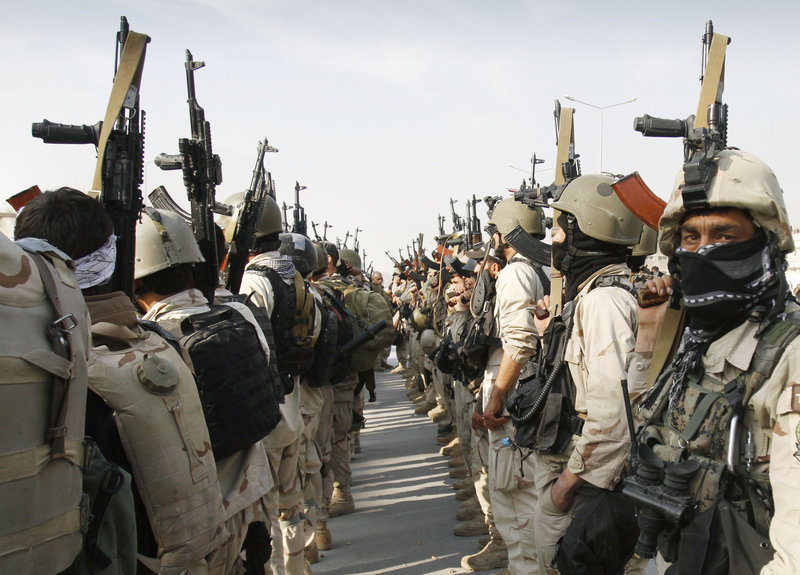KABUL, Afghanistan — For Taliban militants and U.S. strategists alike, all roads in this impoverished country of mountain passes, arid deserts and nearly impassable goat tracks lead to this ancient capital of 3 million people nestled in a high and narrow valley.
The Taliban made their intentions clear over the weekend, mounting spectacular coordinated attacks that spawned an 18-hour battle with Afghan and NATO forces. And now, the U.S. is gearing up for what may be the last major American-run offensive of the war — a bid to secure the approaches to the city.
While bombings and shootings elsewhere in Afghanistan receive relatively little attention, attacks in the capital alarm the general population, undermine the government’s reputation and frighten foreigners into fleeing the country. That’s why insurgents Sunday struck locations that were so fortified they could cause little or no damage, including the diplomatic quarter, the parliament and a NATO base.
“These are isolated attacks that are done for symbolic purposes, and they have not regained any territory,” U.S. Defense Secretary Leon Panetta said Monday.
The U.S.-led spring offensive, expected to begin in the coming weeks, may be NATO’s last chance to shore up Kabul’s defenses before a significant withdrawal of combat troops limits its options. The focus will be regions that control the main access routes, roads and highways into Kabul from the desert south and the mountainous east. These routes are used not only by militants but by traders carrying goods from Pakistan and Iran.
The strategy in eastern Afghanistan involves clearing militants from provinces such as Ghazni, just south of the capital. The pivotal region links Kabul with the Taliban homeland in the south and provinces bordering Pakistan to the east.
NATO, under U.S. command, will also conduct more operations in eastern provinces such as Paktika and Paktia that are considered major infiltration routes to the capital from insurgent safe havens in Pakistan.
Afghan and U.S. officials blamed the Pakistan-based Haqqani network, which is part of the Taliban and has close links with al-Qaida, for the weekend attacks that left 36 insurgents, eight policemen and three civilians dead in Kabul and three eastern provinces. But Army Gen. Martin Dempsey, chairman of the U.S. Joint Chiefs of Staff, said officials have not concluded whether the attacks emanated out of Pakistan.
Send questions/comments to the editors.



Success. Please wait for the page to reload. If the page does not reload within 5 seconds, please refresh the page.
Enter your email and password to access comments.
Hi, to comment on stories you must . This profile is in addition to your subscription and website login.
Already have a commenting profile? .
Invalid username/password.
Please check your email to confirm and complete your registration.
Only subscribers are eligible to post comments. Please subscribe or login first for digital access. Here’s why.
Use the form below to reset your password. When you've submitted your account email, we will send an email with a reset code.